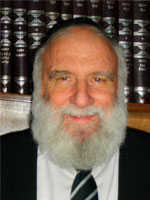 Jie Xiao, ECS Battery Division Secretary, is taking the lead on chartering an ECS Pacific Northwest Division and requests the support of ECS members in Washington and Oregon. With so many well-established and startup companies, research-intensive universities, and a large national lab located in Washington and Oregon, it is timely to form an ECS Pacific Northwest Section.
Jie Xiao, ECS Battery Division Secretary, is taking the lead on chartering an ECS Pacific Northwest Division and requests the support of ECS members in Washington and Oregon. With so many well-established and startup companies, research-intensive universities, and a large national lab located in Washington and Oregon, it is timely to form an ECS Pacific Northwest Section.
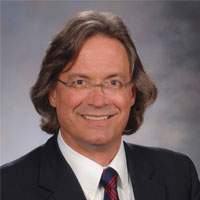 Mark Orazem on a Sabbatical that Doesn’t go According to Plan
Mark Orazem on a Sabbatical that Doesn’t go According to Plan
In our series, The ECS Community Adapts and Advances, Mark Orazem recounts how he made good use of a sabbatical year that didn’t turn out to be anything like he expected. Currently Professor of Chemical Engineering at the University of Florida (UF), he was officially on leave for the 2019-2020 academic year. He is returning to a very different environment than he left a year ago. (more…)
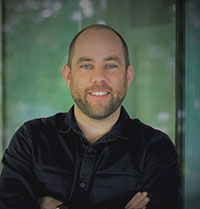 Colm O’Dwyer on doing, teaching, and sharing science in 2020
Colm O’Dwyer on doing, teaching, and sharing science in 2020
In our series, The ECS Community Adapts and Advances, University College Cork (UCC) Professor of Chemistry Colm O’Dwyer talks about how he, his students, and colleagues are managing research and coursework since Ireland shut down on March 11, 2020. Colm also directs the UCC Applied Nanoscience Group, focused on 3D battery printing, developing new sustainable battery materials, and real-time performance assessments using optics and photonics. Colm volunteers on the ECS Board of Directors, chairs the ECS Electronics and Photonics Division, and previously served on the ECS Interdisciplinary Science and Technology Subcommittee. Like many parents, he is homeschooling his young children while juggling other responsibilities. (more…)
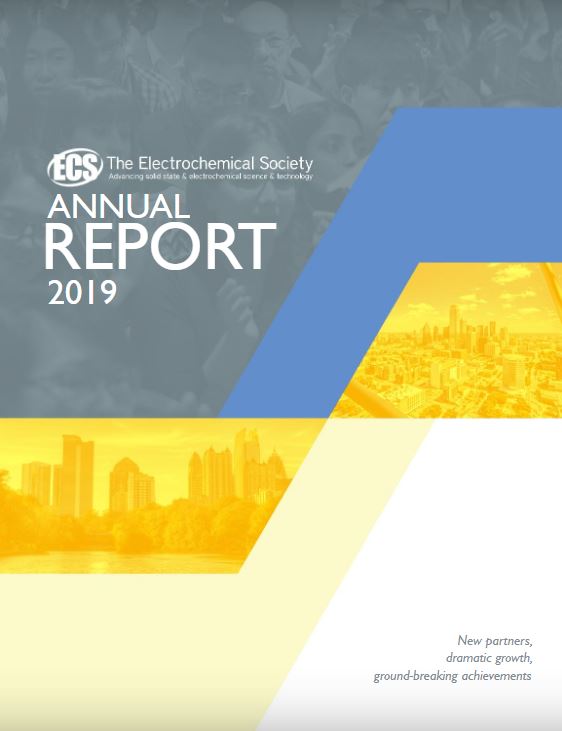 We are pleased to announce the release of the 2019 Annual Report of The Electrochemical Society (ECS).
We are pleased to announce the release of the 2019 Annual Report of The Electrochemical Society (ECS).
“2019 was an amazing year for ECS. From new beginnings and partnerships to unprecedented growth in publications and meetings—and longtime ECS members being recognized for ground-breaking achievements—the Society’s vision and mission advanced dramatically through the efforts of our community (volunteers, members, constituents, and staff). The successes of 2019 have positioned the Society to endure the unprecedented challenges of 2020,” said Chris Jannuzzi, ECS Executive Director and CEO.
In the report, you will find:
- Reports on the expansion of ECS’s community, meetings, publications, and program participants
- Profiles of ECS’s three 2019 Nobel Laureate members
- Summaries of ECS’s support for members including fellowships and awards
- A snapshot of our audited finances and investments in 2019
- A statement of gratitude for ECS’s diverse supporters
StorageX Initiative Presents Doron Aurbach and Kang Xu on June 26
Posted on June 25, 2020 by ECS StaffRegistration is free and open to all!
On Friday, June 26, At 700 am PT (1400 GMT), the StorageX International Symposium features JES Technical Editor Prof. Doron Aurbach of Bar Ilan University speaking on “Frontiers in R&D of high energy density rechargeable batteries,” and Dr. Kang Xu, US Army Research Laboratory, presenting “Interphases: what, how and why.”
Learn more and register here!
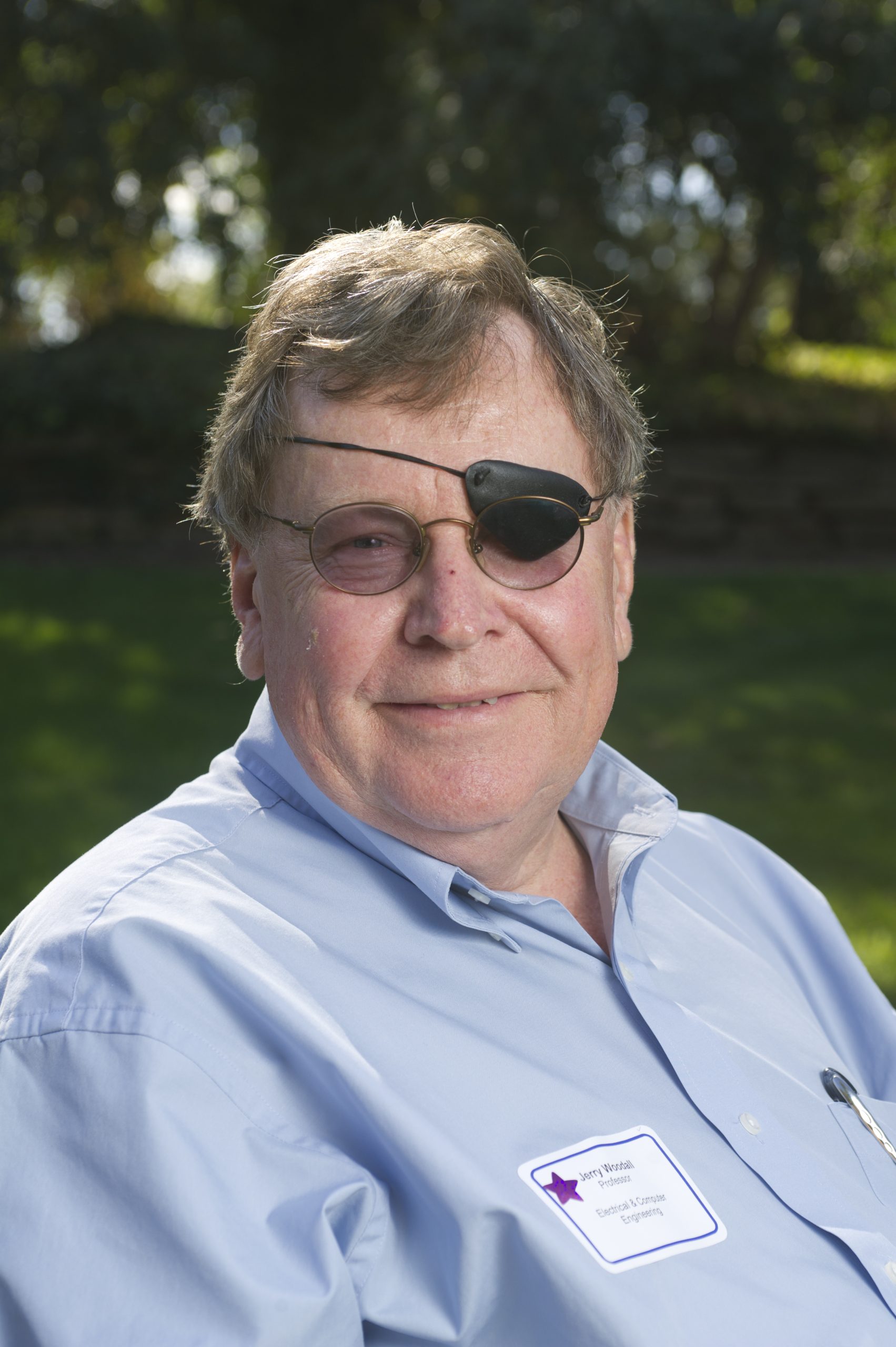 Jerry Woodall on Science and Technology Careers That Matter
Jerry Woodall on Science and Technology Careers That Matter
In our series, The ECS Community Adapts and Advances, Jerry Woodall shares insights from his long career working in industry and academia. An inventor and scientist, Jerry is best known for developing the first commercially-viable red LEDs used in automobile brake lights and traffic lights, CD/DVD players, TV remote controls, and computer networks. He received the US National Medal of Technology and Innovation for “his pioneering role in the research and development of compound semiconductor materials and devices.” Currently Distinguished Professor of Electrical and Computer Engineering at the University of California, Davis (UC Davis), Jerry served as ECS President from 1990-1991. ECS awarded Jerry the Electronics Division Award (1980), Solid State Science and Technology Award (1985), Edward Goodrich Acheson Award (1998), and named him a Fellow of The Electrochemical Society (1992). (more…)
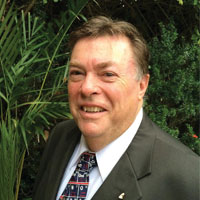 Joe Stetter Improves PPE Sterilization
Joe Stetter Improves PPE Sterilization
Joe Stetter is an optimist, inventor, entrepreneur, and owner of two small businesses that stayed open through the lockdown. KWJ Engineering and Spec Sensors manufacture essential health and safety sensors with medical and industrial applications. In our series, The ECS Community Adapts and Advances, Joe shares the challenges of doing business “not as usual”, and reports on a research collaboration he mobilized to improve PPE sterilization for COVID-19 frontline workers.
![]() On May 14, 2020, the ECS Board of Directors approved a proposal by the Individual Membership Committee to grant student members full voting rights.
On May 14, 2020, the ECS Board of Directors approved a proposal by the Individual Membership Committee to grant student members full voting rights.
Student Membership Expands
Student members are the fastest growing segment of The Electrochemical Society. From 2010 to 2019, student membership grew by nearly 30 percent. Since 2016, ECS Student Chapters doubled to more than 100 chapters. Excellent and highly active student chapters are located around the globe. News about these chapters and their activities is chronicled in recent issues of Interface. In the period from 2010 to 2019, student members showed tremendous passion for ECS and supporting its key missions. Students are an invaluable part of the Society’s membership and community. (more…)
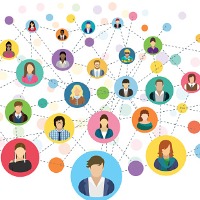
One of The Electrochemical Society’s most important missions is to build a strong community of scientists and engineers working on electrochemical technologies. To help a critical component of our community—early career professionals after their graduate work or coming from non-traditional fields—transition smoothly into careers and ECS membership, the Individual Membership Committee approved the launch of a pilot membership program for Early Career Members. In this program, Early Career Membership is available at only $70, a 46 percent savings over the regular membership rate of $130.
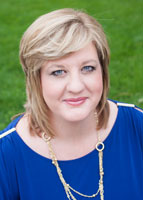 Marion Jones Reflects on Community in a Time of Crisis
Marion Jones Reflects on Community in a Time of Crisis
In our series, The ECS Community Adapts and Advances, Marion Jones describes the caring and concern characterizing her lockdown experience. She reports feeling supported by her North Carolina-based employer and the ECS community, allowing her to pay it forward by helping customers and caring for her family during this period of disruption. Marion also reflects on the multitude of opportunities that ECS offers to students, young professionals, and others in the electrochemical community.


